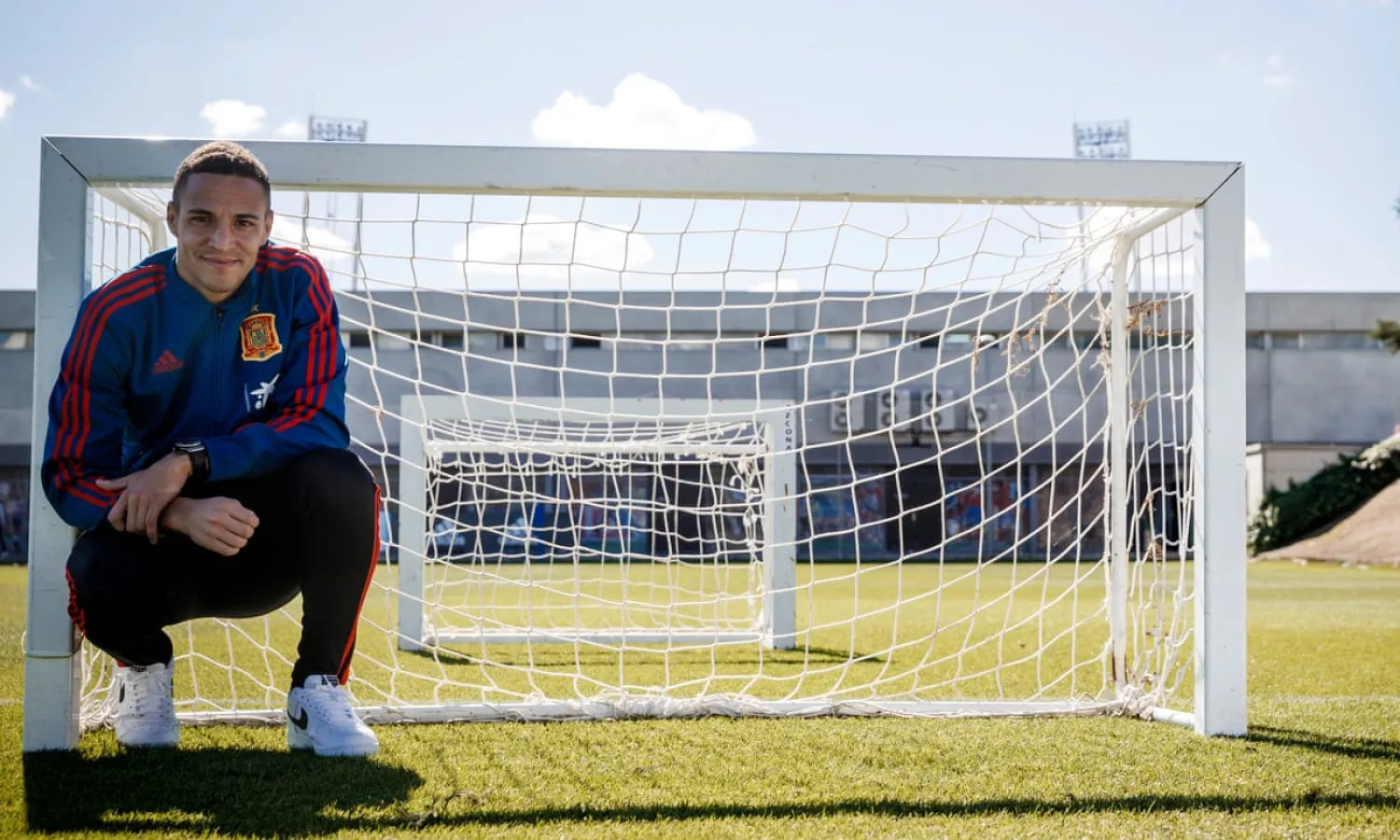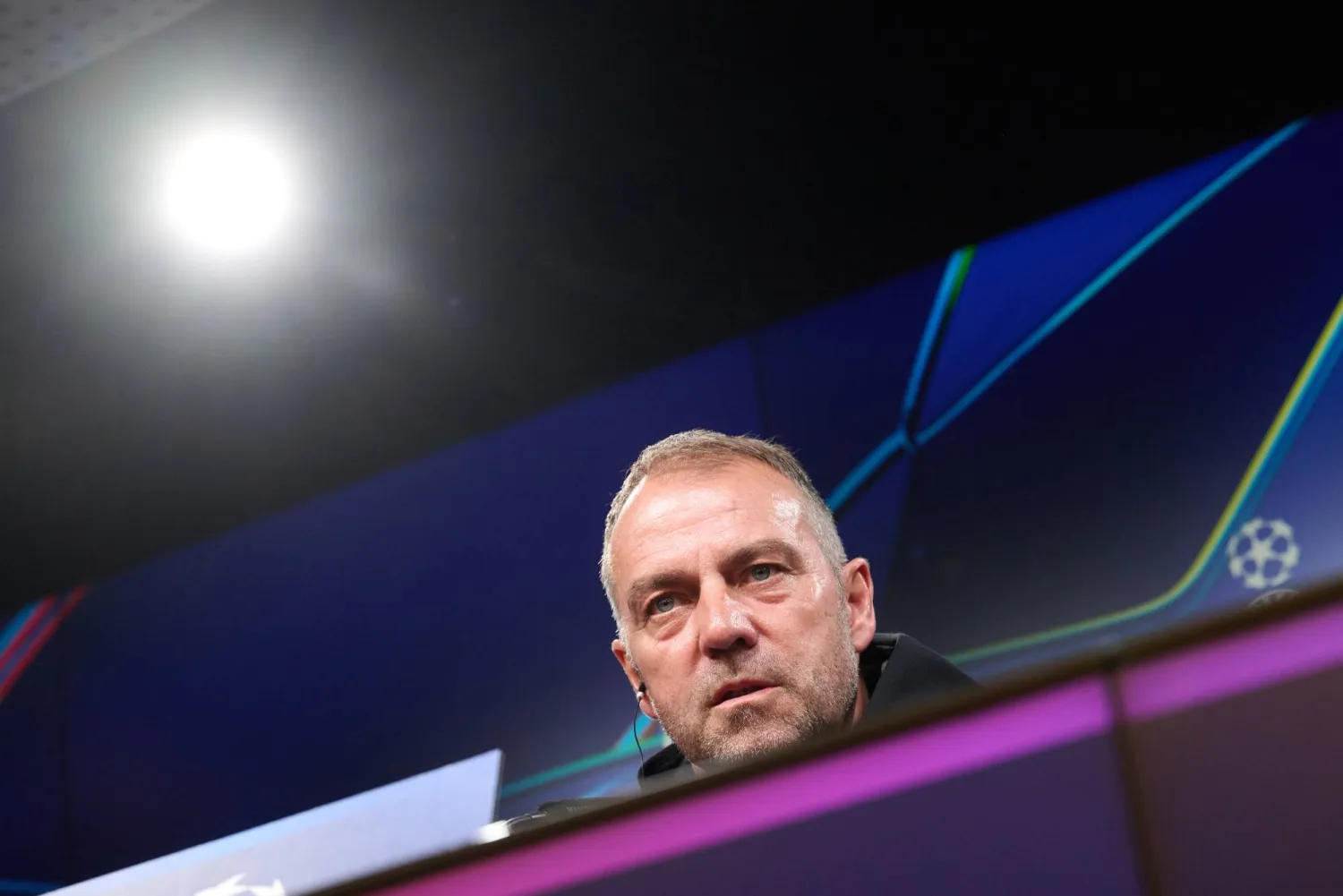Rio de Janeiro, Madrid, Lisbon, and ... Bolton. And straight to Burnley from there. The first professional game played by Rodrigo Moreno – son of a Brazilian footballer, raised at Flamengo, Celta Vigo and Real Madrid, signed by Benfica – was at Turf Moor on a wet, windy Tuesday when his new manager was escorted to the bench by eight security staff and escorted away again at half-time when he ran on to confront the referee. Owen Coyle had left Burnley for Bolton, 23 miles south. Vitriol laced his return.
Rodrigo, then aged 19, had gone a little further to join the same club and found himself in the middle. “I remember them really going for Coyle,” he says. Some introduction, eh? Rodrigo joined Bolton on loan in 2010. A year on he had moved on again, returning to Benfica from where, three seasons and more than 50 goals later, he joined Valencia. He had a solitary year in the Premier League, started four games and scored one goal, but he had kicked something off. Burnley was his first match in England but his last was Manchester United at Old Trafford at the start of this month, and four weeks before that he scored the winner against England at Wembley. Now, as Spain meet Gareth Southgate’s side again, he is one of nine members of the selección who have played club football in England, even if Rodrigo’s case is different from most – no star signing, no Chelsea, United or Liverpool, not much impact either. Not on them, at least. On him – now that is a different story.
“England was good to me,” he insists. Most of it was, anyway. “You go to England, you know the physical demands – you’ve got no choice but to adapt and that makes you grow. Working there daily helped. I enjoyed it.”
Enough to go back one day? “I liked it a lot,” he says with a smile. “Bolton’s a small place and people live totally differently to Spain, but we were there to play football and the club looked after us.”
Rodrigo was born in Rio and he played at Flamengo before the family moved to Vigo where his father, a former wing‑back named Adalberto, managed a soccer school opened by the 1994 World Cup winner Mazinho. Mazinho is the father of Rodrigo’s “cousin” Thiago Alcântara, and the pair were inseparable until Thiago joined Barcelona and Rodrigo Madrid as kids, then even further apart at Benfica and Bayern. Being reunited in Spain teams, at under-19, under‑21 and now senior level, suggests their paths made sense.
To Rodrigo his always did. “Before Benfica appeared, Bolton were interested in signing me. I chose Benfica because they were in the Champions League but I knew I’d have few chances in the first year. I was due to go on loan to a Portuguese side but Bolton was a really interesting option. The Premier League is much stronger.”
Although opportunities were scarce, Rodrigo has no complaints. “There was a nice atmosphere in the dressing room. Owen Coyle was a good person who’d always help younger players.
“A player’s first year is difficult [for a manager]. There’s doubt, the need to respect the stages of development. You might want to put him in but three bad games weigh heavily. Bolton had a good season and when a team wins it’s not easy to make changes. Daniel Sturridge arrived in January, Kevin Davies was captain and [Johan] Elmander got goals. Besides, I participated. I always got on, whether that was five, 10, 20 minutes.
“I was involved, it was my first senior season and I learned a lot. You have to adapt to the speed, the intensity. It’s always a step up from youth football and the Premier League is a step up again. It’s the most physical league, very dynamic, direct, back and forth.
“The way people live football is different, too. That’s what makes the Premier League so special, in that sense it’s better than the rest. It’s cultural, there’s respect for history. I remember the commemoration for those that died in the second world war: the minute’s silence hit me because it really was a minute’s silence. In Spain there’s always some idiot shouting, someone whistling, some insult. The football culture in England is totally different to anything in Spain, France, Portugal, Brazil, Argentina.”
If Rodrigo had to adapt to England, learning a new language – swear words first, he admits with a laugh – he also witnessed an Englishman struggling to adapt to Spain when Gary Neville became his coach at Valencia. “Maybe he found it hard to understand that very specific way of looking at football we have in Spain, especially Valencia. We’ve got some of the most demanding fans, intense, emotional. Maybe you see that and think: ‘Wow.’ Valencia’s demanding anyway and he came at a difficult time. We started badly, the manager was sacked, and he tried to implement his ideas, turn it around, but it wasn’t a good moment.
“It’s hard to say what might have been because what happened happened. But maybe if he’d taken over at the start of the season and had time to prepare the team, his way he’d have had better results. You can argue if he’s a good coach or a bad one but the situation conditioned everything. And the language is a handicap, without doubt. You have a translator but it’s never the same: you always lose the impact, the message you’re trying to transmit.”
Valencia were in crisis, troubles far deeper than the coach. Eventually Marcelino García Toral took over and revolutionised the club. Few felt the benefit as much as Rodrigo. Last season he scored 19 goals after three years without reaching double figures. “It’s a culmination of things,” says Rodrigo on his improvement.
“We’re all born with ability. If not, however much you train, you’ll never reach that level. It’s like Messi: I could train 50 hours a week and I’m never going to be as good. But there’s all the work: training, ambition, wanting more, all those elements. England helped form me, build me. It was my first year and it taught me to prepare, overcome obstacles. It was an important year.”
Julen Lopetegui took Rodrigo to the World Cup and then, having become Real Madrid’s manager, wanted to take him to the Bernabéu, too. Rodrigo stayed at Valencia and now he is No 9 for a resurgent Spain. Victorious at Wembley, 6-0 winners over Croatia, 4-1 in Wales, on Monday they face England again, their place in the Nations League final four virtually secure.
“It’s a special game – reward for everything,” Rodrigo says. “England showed they’re strong at the World Cup and at Wembley. We played well but still struggled in the last 15 minutes and won because David de Gea made a great safe from Marcus Rashford. This is the kind of game that would motivate anyone, not just me.”
The Guardian Sport









